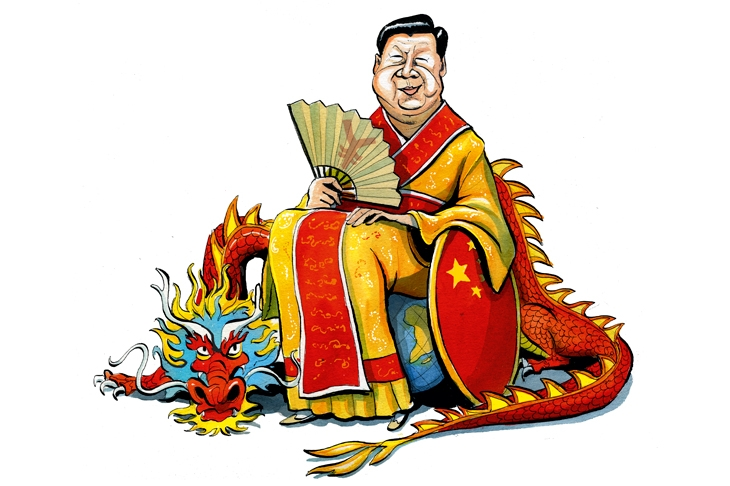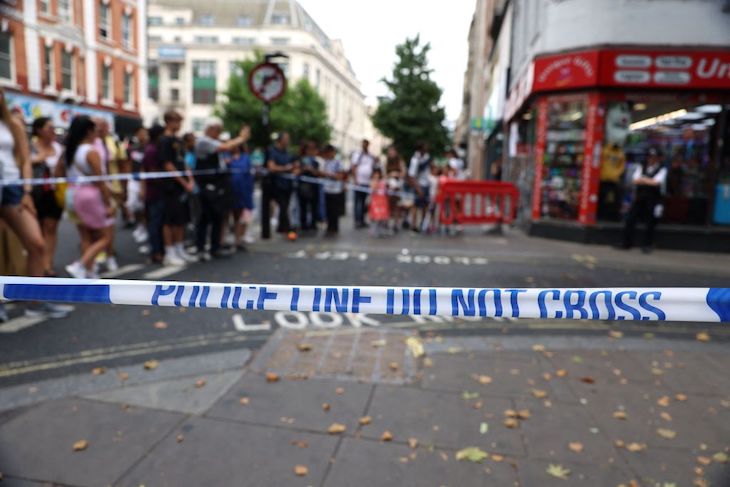Of all those who have been purged by President Xi Jinping, disappearing into the communist party’s vast network of black jails, Liu Jianchao is one of the most intriguing. He has held a number of top roles in the party apparatus – including in overseas influence operations and in running a shadowy department that sought to track down overseas exiles and ‘persuade’ them to return home, using methods that ranged from intimidation and even abduction to threatening family members still in China. He was also tipped to be the next foreign minister.
Liu will also know that corruption crackdowns are rarely solely about corruption, but a smokescreen for all manner of misdemeanours, real or imagined
Liu was the head of the party’s International Department at the time of his detention, and according to reports this week he was nabbed by anti-corruption officials on his return from a late July visit to South Africa, Singapore and Algeria. His house was later searched. His deputy, Sun Haiyan, a former ambassador to Singapore, has also reportedly been detained.
The International Department plays a key part of the Party’s overseas influence operations, and Liu’s role was to charm targeted overseas individuals and organisations, persuading foreign politicians, political parties, academics, think tanks and NGOs of the Party’s infinite wisdom. The aim was to build relationships – organising exchanges, study tours and other gatherings, and in so doing build the CCP’s database of useful idiots who could be called upon to parrot the party line when needed.
Previously he ran the Party’s International Fugitive Recovery Office, whose methods were somewhat less charming. It oversaw an operation variously known as Fox Hunt or Sky Net, which has been accused of all manner of repressive activities in pursuit of ‘fugitives’ – an infinitely elastic concept in China. ‘He bears responsibility for the forceful return to China of thousands of individuals through illegal methods,’ according to Safeguard Defenders, a human rights group that monitors disappearances in China.
With his International Division hat on he would reportedly wax lyrical during visits to the UK about his time studying for a master’s degree in international relations at Oxford in the 1980s; less so about his time running anti-corruption operations in Zhejiang, when that province topped the charts in the use of the Party’s liuzhi system of extrajudicial detention, according to Safeguard Defenders.
So Liu’s disappearance should not be greatly mourned, though the fact that his career could take him so seamlessly from the Party’s more thuggish wing to running a key part of its influence operations demonstrates how these roles are for the party two sides of the same coin – complementary tools in pursuit of CCP interests. Liu will also know that corruption crackdowns are rarely solely about corruption, but a smokescreen for all manner of misdemeanours, real or imagined. Even China’s own figures show ever greater weight being given to political violations including ‘speaking ill of the party’s policies’, ‘abandoning ideals and convictions’, and ‘being untruthful and disloyal to the party’.
One of Liu’s latest jobs was to build influence on behalf of the party, and there have been suggestions that perhaps the influence ran too far the other way: that an ever paranoid CCP saw him as becoming a little too westernised. In such an opaque system, rumour can quite quickly take on a life of its own. When then foreign minister Qin Gang disappeared in 2023, rumours ranged from espionage to suggestions he had fathered a child out of wedlock in the US with a Chinese television journalist.
Whichever part of the black jail system Liu now finds himself in, he may well be sharing the premises with men who once wore military epaulets. While Xi’s purges have spared few institutions – even the graft hunters themselves – the armed forces have come in for particular attention. Earlier this year, General He Weidong, the number-two officer in the PLA and a member of the CCP’s 24-strong politburo, was removed from his post. This followed the disappearance of Miao Hua, a navy admiral and one of six members (along with He) of the Party’s powerful Central Military Commission, which is chaired by President Xi Jinping.
Miao was also head of the PLA’s Political Works Department – charged with ensuring CCP control over the military, and was regarded as more powerful even than defence minister Dong Jun, around whom rumours have also swirled. China’s Rocket Force, the most secretive and sensitive branch of China’s military, which overseas its nuclear forces, has been the target of an extensive purge, included two of its commanders. Among others purged have been a navy commander responsible for the South China Sea, and several others responsible for procuring equipment – long a notoriously corrupt part of the military. According to a tally in Caixin, a Chinese business publication, more than 80 generals have been caught up in China’s anti-corruption campaign since Xi came to power, including 13 full generals, 18 lieutenant generals, and more than 50 major generals
During a visit to a Rocket Force brigade last year, Xi said the People’s Liberation Army should be ‘absolutely loyal, absolutely pure, and absolutely reliable’. That is also a mantra he appears to be applying more broadly across the party, enabling him to pick off his enemies at will.








Comments